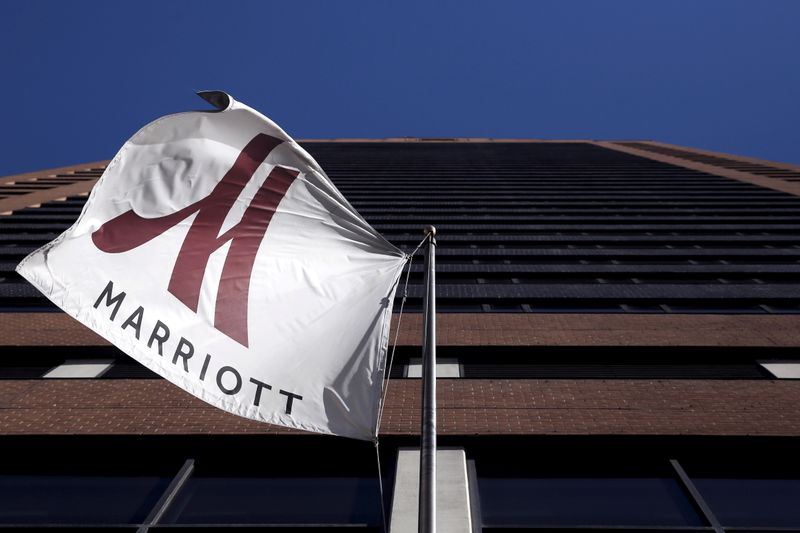By Shreyasee Raj
(Reuters) -Marriott reported lower-than-expected quarterly profit and revenue because of fewer bookings in its main U.S. market, but the business showed a sharp rebound in China, which is emerging from the coronavirus pandemic at a faster pace.
It is a long road to recovery for Marriott and its smaller rival Hilton, analysts have said, as the hotel operators rely heavily on business travel, which remains weak due to border curbs in many countries.
Marriott, which gets about three quarters of its revenue from the United States and Canada, said its RevPAR, a key measure for a hotel's top line performance, fell 46.3% in the region, sending its shares down as much as 3.8%.
Greater China was the only market that showed positive occupancy growth as RevPAR surged nearly 77%, while it plunged 80% in Europe, making the continent the worst performing region due to the fresh restrictions that have been imposed.
"While recovery trajectories vary from region to region, the resiliency of demand has been most keenly demonstrated in mainland China, where occupancy is near the pre-pandemic level," Chief Executive Officer Tony Capuano said.
"Given rising COVID cases and strict restrictions in many countries (in Europe), 25% of the region's hotels are currently closed," he told analysts.
Last week, rival Hilton had said Asia, including China, was its only market with positive quarterly occupancy rates and the smallest year-over-year fall in RevPAR.
Marriott, which owns the JW Marriott and Ritz-Carlton brands, said more than 95% of its hotels were open globally.

The hotel operator's adjusted profit fell 33% to $296 million in the first quarter, below market expectation of $305.6 million, according to IBES data from Refinitiv.
Total revenue halved to $2.32 billion and missed Wall Street estimate of $2.36 billion.